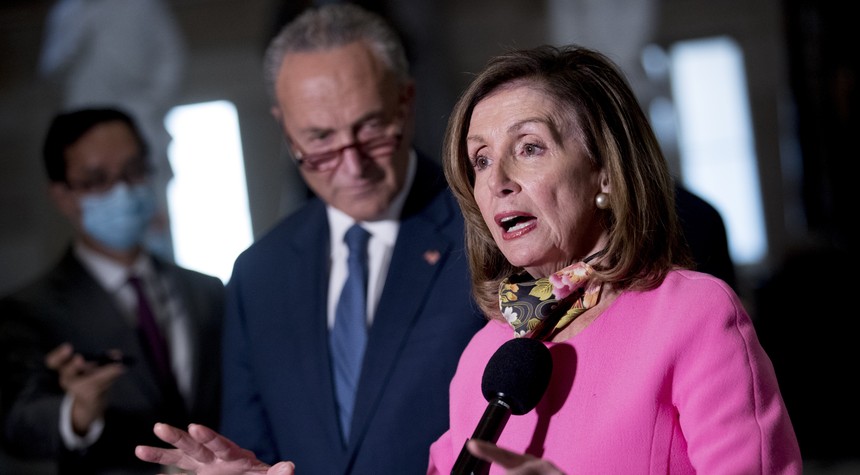Democrats Hit Two Massive Roadblocks on the Path to Gun Control Legislation
In the aftermath of mass shooting tragedies in this country, the first thing elected officials – especially on the left – do is to begin pointing fingers at the other side while making vile accusations. The second thing is to commence with “do something” rhetoric, in some instances out of a genuine desire to make people safer but in others to “never let a crisis go to waste” in using it to try and implement massive power grabs over the American people. 17 others were wounded.
Unfortunately, we’ve seen this scenario play out among Democrats almost to the letter in the ten days since the horrific mass shooting that happened at Robb Elementary School in Uvalde, Texas which saw a deranged 18-year-old gunman shoot his grandmother in the head before proceeding to the school he once attended and murdering 19 students age 11 and under and two teachers who were trying to protect them. 17 others were wounded.
But in their quest to try and ram through gun control legislation that their Republican critics say would not only not prevent more gun violence in schools but would also further erode the Second Amendment, Democrats have found themselves running into two massive roadblocks:
Each other and voters.
As CNN of all places reported Wednesday, the opinions of the American people are not as pro-gun control as Democrats and some in the media want people to think:
[Polling guru Harry Enten]: So, there’s this great question from Gallup, which essentially asks, are you satisfied with U.S. gun laws, and if you aren’t satisfied, if you’re dissatisfied, do you want stricter gun laws, do you want them to be less strict?
Only 36%! Only 36% of Americans say they are dissatisfied and want stricter gun laws. Get this: 54% say they’re either satisfied, or they’re dissatisfied and actually want less strict gun laws. It could be that you want stricter gun laws but you’re generally satisfied and this
This to me tells the story. Because it could be that you want stricter gun laws, but you’re generally, actually, satisfied, and this 54% gives it away. Most Americans are either satisfied, or they actually want less strict gun laws.
[…]
You know, what I love is when you actually look and say, okay, do these polls actually follow where the voters are when they get a chance to vote on it?
And back in 2016, there were two ballot measures to expand background checks. One was in Maine, one was in Nevada. Remember: both of these states are right in the middle of the national electorate, right? They’re both within a point of the national presidential. Look what happened in Maine. Yes only got 48.2%. The ballot measure actually failed to extend background checks. The majority, 52%, said no. In Nevada, it barely passed just a little more than 50% of the vote.
So you look at those polls that say background check: 80%, 90%! When you look at people actually voting on the measure, it’s not anywhere close to that! It’s much more of a 50/50 proposition.
Watch:
Some House Democrats in competitive districts and purple states appear to be keenly aware of the disconnect between what party leaders like Sen. Majority Leader Chuck Schumer and House Speaker Nancy Pelosi say about national opinions on gun control and what the reality on the ground actually is and are very worried about what type of pushback they’ll get at the ballot box in November:
Democrats are haunted by political fears on the issue of gun control, making the party reluctant to completely stick its neck out on moves such as banning assault weapons.
More than 20 years after restrictions on guns were blamed in part on Al Gore’s loss in the 2000 presidential race, many Democrats still worry that being too aggressive on gun control could hurt the party’s candidates in purple states and House districts.
“If you’re someone like Raphael Warnock, it’s a complicated message. It’s a nuanced message at best,” one Democratic strategist said of the incumbent senator who is up for reelection this year in a competitive race against Republican Herschel Walker. “There’s a lot of history that scares a lot of people. It’s a slippery slope that Democrats don’t want to be on the wrong side of, particularly for front-line Democrats.”
In other words, the reality of the matter is setting in despite the heightened rhetoric coming from The Usual Suspects. “Leaders” like House Judiciary Chair Jerry Nadler should take note that holding votes like the ones he’s planning on his recently introduced legislation in order to “get colleagues on the record” may just backfire on those in his own party and in a year where some are predicting historic election losses for Democrats.
As always, stay tuned.





Post a Comment